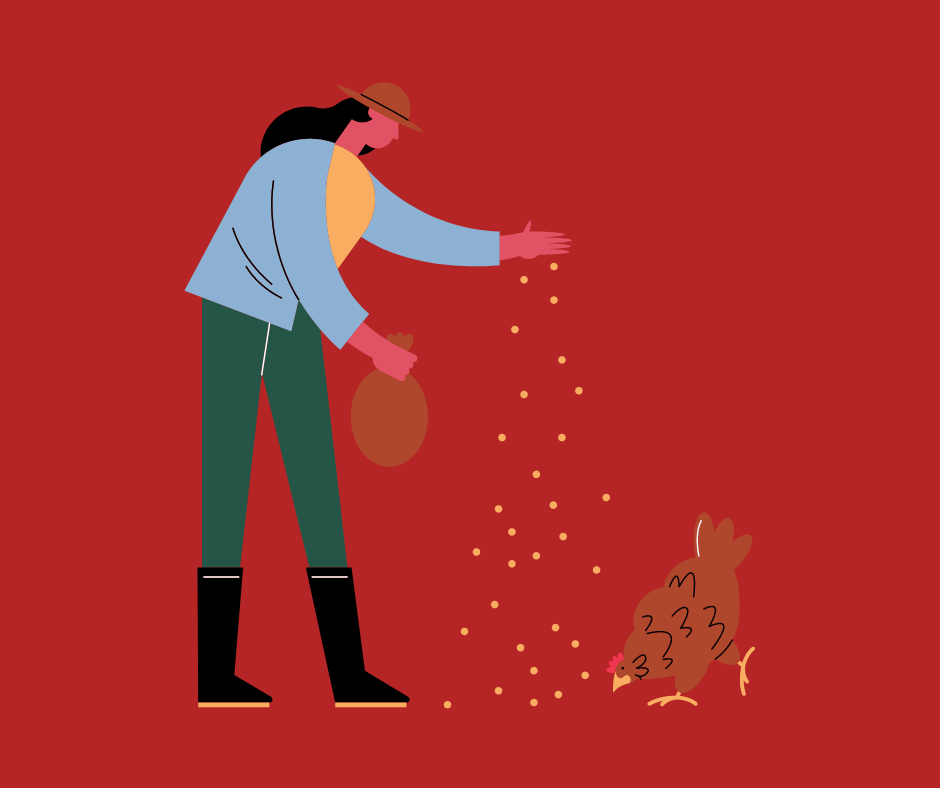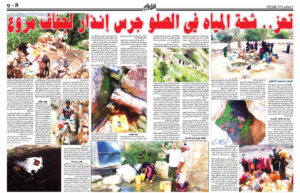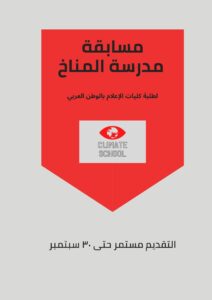Copied from Daraj website, published on January 16, 2022. You can refer to the original link from here
“Iraqi women in general, and rural women in particular, are the group most affected by climate change in Iraq.”
Khairiya (70 years old) lost her job in agriculture and herding cows and sheep. One of the sheikhs of her remote village in Samawah, southern Iraq, who is her employer, decided to sell his farm due to climate change, drought, water scarcity, and lack of rain. After that, Khairiya refused to leave her small room, preferring to die in the land she had spent her life caring for, especially since she was completely alone and had no breadwinner.
Fakhriya (50 years old) and the mother of five children, three boys and two girls, also suffers from the hardship of living in one of the villages in the Warka district in the Muthanna Governorate in southern Iraq, which was abandoned by its farmers for the same reason. After she was making money from raising poultry and selling her products to the people of the village, her husband left her with Her children are in a mud house with a roof made of palm leaves, and she has to face everything alone.
Iraqi rural women face a lot in light of climate change and the decline in agricultural professions it imposes and the difficulty of securing basic needs, in light of water scarcity.
In this context, a study presented by the director of the Women’s Rights Organization, engineer and jurist Batoul Al-Dagher, entitled “Iraqi Women and Climate Change,” stated that “Iraqi women in general and rural women in particular are the group most affected by climate change in Iraq, and the weakness that rural women suffer is due to their dependence on Natural resources and agricultural production are essential for living, while these resources have become scarce due to climate change, which has led to an escalation in the rate of social violence, trafficking in women, inequality between men and women, violations of women’s rights, and a rise in divorce and suicide cases.”
The climate concerns that threaten Iraq and its people were translated by the Iraqi President, Abdul Latif Rashid, at the Climate Summit Conference (COP 27) held in November 2022 in the Egyptian city of Sharm El-Sheikh, as he explicitly acknowledged that the water crisis in Iraq forced the authorities to reduce Agricultural areas, and desertification threatens 40 percent of Iraq’s area.
Maryam Al-Fartusi, Executive Director of the Alice Foundation for Women and Children’s Rights in Muthanna Governorate in southern Iraq, also confirmed that since the beginning of the climate changes that struck the governorate, starting with dust storms and the drying up of Lake Sawa to the deer famine, agricultural areas have been damaged and reduced by half under the guidance of The Ministry of Agriculture, knowing that in the previous season it was about 350 thousand dunums.
Failure in the work of the concerned authorities
Climate changes have affected agriculture in the villages of the governorate, which depend exclusively on agriculture and livestock, as the scarcity of surface water, lack of rain, global warming, scarcity of vegetation, and the inability of farmers to buy fodder, all led to the migration of farmers from the countryside to the city and the decline in the ratio of agricultural areas to... Al-Nisf, explains the Director of Planning in the Muthanna Planning Directorate, Engineer Qabil Hamoud Al-Barakat.
Barakat added to “Daraj” that it is the responsibility of the Ministry of Agriculture to address the effects of global warming, in cooperation with a number of government agencies, but it has failed in recent years to combat climate change with effective methods, in the poorest Iraqi governorate, which includes 538 villages and 21,400 homes. Random, while the area of the desert is 18 million dunums.
Barakat stressed that appropriate solutions begin with the state putting in place the necessary future precautions to confront the danger of desertification, global warming, and water scarcity, and cooperating with neighboring countries in managing external and internal water, organizing the irrigation process, combating abuses on river banks, and using modern mechanization.
Migration of the marsh population
Environmental expert Engineer Jassim Al-Asadi, from the “Nature Iraq” organization in Al-Chibayish District (east of Dhi Qar Governorate), explains that climate change in Iraq has led to a large migration from the marshes to the cities, and many people have lost their sources of livelihood due to their reliance on water mainly, so they have no longer They find nothing to support their livelihood or sustenance for their day. Al-Asadi added to “Daraj” that climate changes in the Iraqi marshes led to the drying up of lakes that are important to the local population’s economies and biodiversity, and a large part of the marshes became part of the Iraqi desert.
He pointed out that cane farmers and fishermen lost about 95 percent of the fish in the marshes, while animal breeders, especially buffalo, lost 20 to 33 percent of their herds, and buffalo milk production decreased from 6 liters to less than one liter per day, and buffalo prices fell. Hardly. This led to significant migration into and out of the marshes.
In view of this, water distributions within Iraq must be reconsidered, “as we do not have more than 9 billion and 600 million cubic meters of water today in the three main dams and reservoirs: Dokan, Haditha, and Mosul. Therefore, it is urgent to restore the local population and support animal feed prices.” And providing financial support within the social welfare network for fishing and buffalo breeders as well.” Al-Asadi points out that despite the work of government institutions with civil society organizations, the government’s promises to work to combat climate change remain ink on paper, calling on the Ministry of Muhammad Shia’ al-Sudani to pay attention to the marshes and develop an implementable plan.
Continuing migration has led to an unbalanced distribution of the population, 70 percent of whom have moved to urban areas, which negatively affects agricultural development and forces women and girls to walk longer distances to obtain water, thus exposing them to greater risks, as the population analysis report issued by the Fund shows. United nations. According to the UNICEF Climate Risks to Children Index, children and youth are exposed to moderate to high climate risks in Iraq, with groups suffering from fragility, loss of livelihoods, early child marriage and teenage pregnancy, and conflicts between local communities.
Hence, Mona Al-Hilali, President of the “Ur Organization for Women and Children,” appealed, on behalf of the women of the marshes and the affected areas, to the United Nations, the Department of Women’s Empowerment, and the concerned authorities, to take measures towards the environmental disaster, as the number of displaced families from the Dhi Qar Governorate in southern Iraq reached 3,000 families. A large number of school students dropped out, and many lost their sources of income, demanding an urgent solution to this humanitarian crisis.
Internationally, Iraq is classified among the five countries most affected by climate change, primarily global warming, decreased water levels, desertification, drought, the decline of agricultural lands, a significant rise in temperatures, and a decrease in water revenues, which affects national security in general, especially food and water security, noting that Iraq was one of the countries that joined the Paris Climate Agreement on November 2, 2021. What made matters worse were the giant dams built by neighboring countries (Turkey and Iran), which led to water scarcity in the Tigris and Euphrates rivers and the marshes in southern Iraq.
To put pressure on the concerned authorities and decision-makers to address the climate problem, a number of civil society organizations and activists organized a protest in the Al-Qashla building on Al-Mutanabbi Street in the capital, Baghdad, in which they called on the concerned authorities and the Ministry of Environment to save the marshes and their residents and preserve them socially, economically, environmentally and culturally, by developing policies that combat climate change. Climate changes, especially since Iraq loses seven million dollars daily because of them, according to statistics from the Ministry of Environment, which requires very urgent measures.





